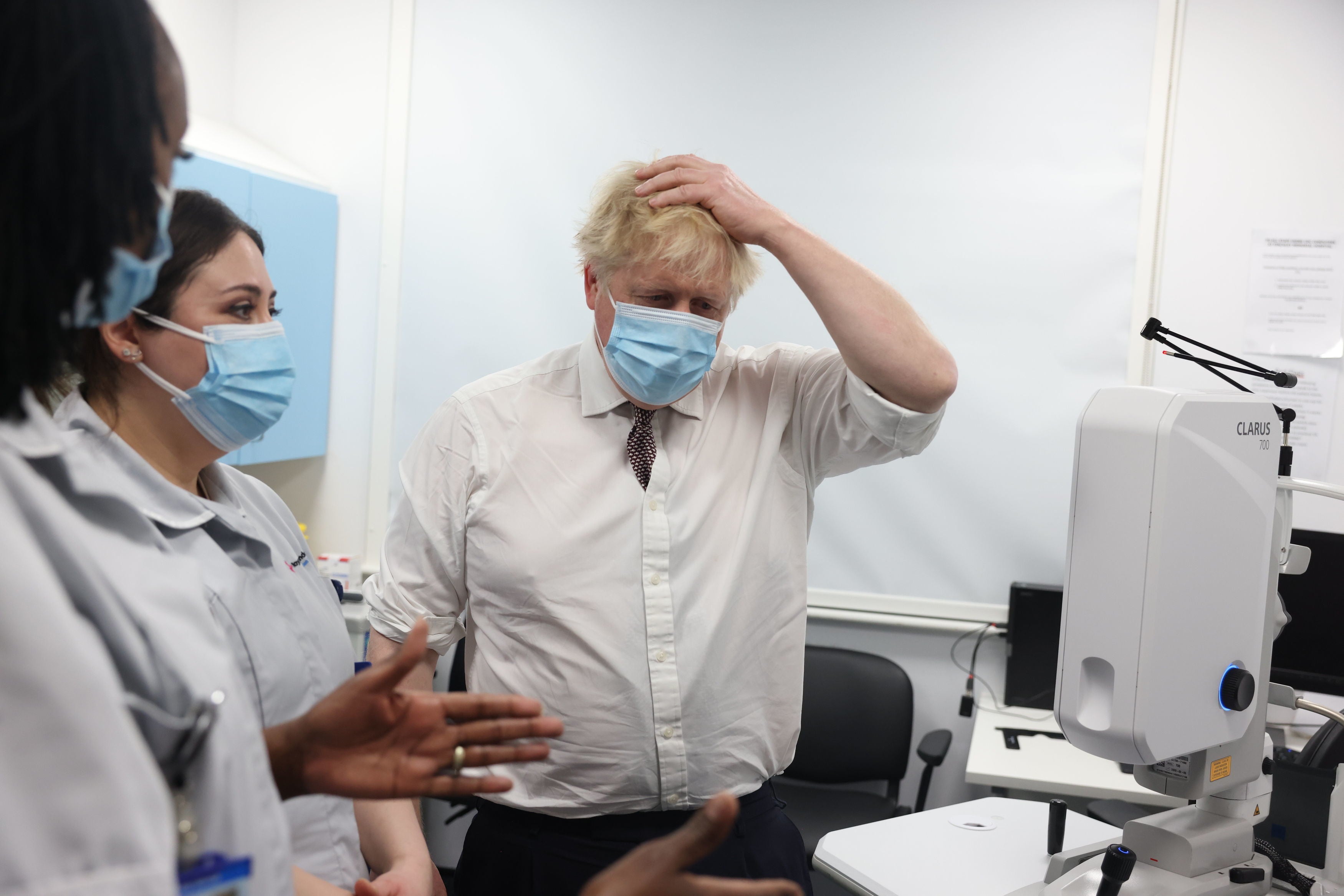Boris Johnson’s Operation Red Meat is just an act of desperation
There is little else the PM can offer to distract his critics or end the unrelenting bombardment of his reputation, believes Sean O’Grady


Reported on Sunday; announced on Monday; trashed on Tuesday. Like a bad version of the Craig David song, Boris Johnson’s Operation Red Meat had a truncated and rather troubled career. Whatever the merits of the various distractions from the unlikely (because absurd) psychodrama of Partygate might have been, it is fair to say they’ve not really calmed things down for the prime minister.
On the contrary, the very fact that the clumsily named Operation Red Meat was such a blatant attempt to buy off angry backbenchers itself became a further source of complaint. For example, the Spartan Eurosceptic and Johnson loyalist Andrew Bridgen MP dismissed the “meat” as “sweets … you’ve already had in your pocket and you’ve already promised them”. Like everyone else, Bridgen knows that the Covid restrictions are set to be reviewed on 26 January – hardly a great lump of succulent red meat for his ravenous backbenchers. The blood they can sniff is the prime minister’s own.
It didn’t really do the trick, then, even before Dominic Cummings’s latest bombshell, which might suggest that Downing Street, even now, doesn’t quite comprehend the nature of the danger to the prime minister’s career.
It certainly didn’t help that his foremost defender – the most loyal of the loyal, Nadine Dorries – made a bit of a mess of the flagship announcement, put out via her Twitter account, that the current BBC licence fee review “will be the last”. It earned her a rebuke from Speaker Hoyle, for not telling parliament about this momentous change first, and the BBC’s leadership wasn’t consulted. In the event, Dorries ended up retreating from her implied pledge to merely calling for a “debate”. Some Tory MPs welcomed the move, but many fretted about what might happen to pet concerns such as radio, local news, BBC Education, regional centres and so on.
Earlier, Priti Patel, the home secretary, had her turn to act as a human shield of inhumanity as she did her best to big up the new role of the royal navy in ending the refugee crisis in the English Channel. However, far from Her Majesty’s ships towing dinghies back to France and leaving them there, it turns out that the initiative amounts to one royal navy rear admiral coordinating attempts to make the current failed approach by Border Force work a bit better. The spin that people were to be sent for processing in Ghana was also denied by their government. Again, a flop.
Michael Gove’s white paper on levelling up remains a work in progress, permanently delayed. The signs are that, if it ever does make it into the outside world, it will be little more than a collection of already-launched initiatives, and that the Treasury will be putting little if any new money into this thematic centrepiece of the Johnson administration. “Levelling up” remains as amorphous as it was when the prime minister made his disastrous, rambling, content-free “keynote” speech last July. What the PM calls “the greatest project that any government can embark on” remains mostly aspiration.
There is, though, much more certainty that a rumoured clearout of No 10 staff will go ahead, in an attempt to answer Tory MPs’ concerns about the “culture” of Downing Street. No one would fall off their chair if some were sacked as soon as the Sue Gray report emerged. Some Tory MPs might be satisfied with that, but the voters usually pay little attention to the fate of officials.
Short of starting a trade war with the EU or a real war with Russia, there seems little else the PM can offer to distract his critics or end the unrelenting bombardment of his reputation by Dominic Cummings. The question remains: will Johnson be standing even at the end of this week?



Join our commenting forum
Join thought-provoking conversations, follow other Independent readers and see their replies
Comments